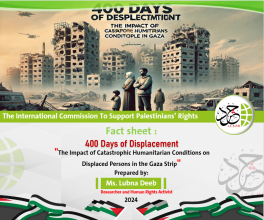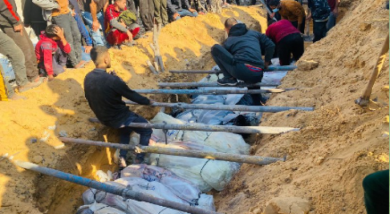
ELEVEN SIGNS THAT BDS CONTINUES TO GROW DESPITE ISRAEL’S WAR OF REPRESSION
The Palestinian-led, global Boycott, Divestment and Sanctions (BDS) movement was launched eleven years ago as a nonviolent and effective means for progressive people and organizations across the world to support the struggle of the Palestinian people for our rights under international law.
Inspired by the struggle against apartheid in South Africa and the US Civil Rights movement, BDS today is widely recognized as having a strategic impact in challenging international support for Israel’s regime of occupation, settler-colonialism and apartheid over the Palestinian people.
Having failed to stop the inspiring spread of mainstream support for the BDS movement across the world, Israel has launched a desperate and dangerous war of repression and demonization against the movement that reminds us of the darkest moments of McCarthyism in the US.
Nevertheless, support for BDS has not only continued to grow – it has accelerated. Western governments, leading political parties and the world’s largest human rights organizations have recently recognized BDS as a legitimate means of nonviolently advocating and campaigning for Palestinian freedom, justice and equality.
What follows is a snapshot of developments in the BDS movement so far during 2016. We’ve also published round-ups of major BDS successes during 2014 and during 2015.
Our campaign for the #RightToBoycott is winning mainstream and government support
At Israel’s request, governments in the US, UK, France, Canada and elsewhere are seeking to repress BDS. Israel has banned BDS movement co-founder Omar Barghouti from travelling and says it may revoke his residency status.
Mainstream organisations and even governments recognise Israel’s repressive war against BDS as a dangerous challenge to fundamental freedoms.
Representatives of the Swedish, Irish and Dutch governments have publicly defended the right to advocate and campaign for Palestinian rights under international law through BDS, as have organizations including Amnesty International, the International Federation for Human Rights (FIDH) and the American Civil Liberties Union.
More than 23,000 people signed our appeal to the UN regarding #RightToBoycott, and a related testimony was presented at the recent UN Human Rights Council.
Following the lead of other mainstream US newspapers, the Los Angeles Times ran an editorial on Tuesday titled Boycotts of Israel are a protected form of free speech.
Far from slowing down support for our BDS movement, Israel’s anti-democratic war of repression against has provided the movement with further exposure and newer audiences.
The Stop G4S campaign is building power and spreading across the world
#StopG4S action for Palestinian prisoners day 2016 in Lebanon
The international campaign to pressure G4S to end its role in Israel’s prison system, police, military, checkpoints and illegal settlements has made impressive new gains during 2016.
BDS campaigning has directly led to G4S losing contracts with 3 UN agencies in Jordan and amajor retailer in Colombia and to a Kuwaiti government fund divesting from the company. This follows a series of campaign wins over the last two years that have seen companies, charities and investors across the world, from the Bill and Melinda Gates Foundation to the United Methodist Church, take similar steps.
Unions and campaign groups in the US, Egypt, Uruguay, Chile and Lebanon are stepping up their G4S campaigning, and the Stop G4S campaign is currently active in more than a dozen countries.
At its shareholder meeting in June, G4S repeated its March announcement that it intends to sell its Israeli subsidiary. However, the company has stopped short of guaranteeing it will end all aspects of its involvement in Israel’s prison systems or other human rights abuses.
Our campaigns against corporate complicity are more effective than ever
Campaigners in Bahia, Brazil, succeeded in getting the state authorities to end its collaboration with Israeli water company Mekorot
In January, French telecoms giant Orange ended its franchise deal with Partner Communications in response to campaigning in France and Egypt over Partner’s support for the Israeli occupation.
That same month, Irish company CRH sold its Israeli subsidiary Nesher Cement following public pressure over Nesher’s supply of cement to Israel’s apartheid wall and settlements.
Sportswear giant Reebok canceled a special edition sneaker celebrating “Israeli independence day” following a huge social media outcry.
In April, the Brazilian state of Bahia became the latest public body to end its collaboration with Israeli state water company Mekorot over its role in the theft of Palestinian water.
Local governments are joining the BDS movement and declaring themselves Israeli Apartheid Free Zones
More than 50 local municipalities in the Spanish state have voted to declare themselves to be Israeli Apartheid Free Zones.
In France, the municipal council of Bondy, a Paris suburb, voted to “to no longer buy produce from Israeli settlements” and acknowledge the legitimacy of boycott as a tactic.
In the UK, the High Court last month ruled in favour of local councils who support a boycott of the Israeli occupation, upholding their right to do so in a court case initiated by an Israel lobby organisation.
- Mainstream US churches are divesting from complicit companies
Church bodies and denominations across the US are taking decisions in support of divestment and other accountability measures against Israel’s regime of oppression.
The Presbyterian Church (USA) has recently built on its 2014 vote in support of divestment from occupation profiteers by passing a series of Palestine motions including a call on US company RE/MAX to end involvement in the sale of houses in illegal Israeli settlements and a call for the “prayerful study” of the Palestinian call for BDS.
In January, the United Methodist Church announced it was divesting from Israeli banks that finance the occupation. The Alliance of Baptists announced in April that it will divest from companies that are complicit in Israeli occupation. The Conference of Major Superiors of Men, a group of Catholic leaders, issued a statement in support of boycott and divestment measures in March.
- Support for academic boycott and BDS on campus continues to grow
Campaigners at the University of Chile during their successful referendum campaign
So far in 2016, student governments and associations at more than 10 US universities have voted to support divestment or other BDS measures.
In the UK, students at University College London and Edinburgh University have voted to make their student unions the latest to endorse BDS, and the National Union of Students Black Students Campaign voted to reaffirm its support for BDS and defend the BDS movement from the efforts of Israel and the UK government to repress it it.
Campus activism is now growing across Latin America also: more than 200 Brazilian academics have pledged to support the academic boycott in January students at the University of Chile voted to support BDS.
The 12th Israeli Apartheid Week was the biggest yet
This year’s Israeli Apartheid Week was the biggest yet, with groups in over 225 cities and university campuses registering their participation. The growth of Israeli Apartheid Week in countries in Latin America and across the Arab world is particularly inspiring.
Major political parties are taking BDS-related action or supporting the right to BDS
In April, two separate Dutch political parties, D66 and the Green Left party, passed motions calling for sanctions on Israel.
Just last week, the Socialist International (SI) issued a declaration recognising the legitimacy and effectiveness of BDS. SI is an enormous association of over 150 socialist and social-democratic political parties from more than 100 countries across the world. It includes many parties in government, such as in Germany, South Africa, France, Chile, Italy, Mexico, Portugal, among others.
The world’s biggest trade unions continue to join and support the BDS movement
Some of the UK’s biggest trade unions recently supported the Stop G4S campaign by calling on the company to end its role in Israel’s prisons, checkpoints and military.
In May, the Uruguayan Federation of Workers of Services and Commerce (Fuecys) called for the boycott of Israeli products and for companies in Uruguay to break their ties with Israel’s apartheid regime.
The UN is creating a database of corporations enabling Israel’s occupation
On March 24, the UN Human Rights Council took the unprecedented step of deciding to create a database listing all corporations whose business activities contribute to Israel’s illegal settlement enterprise in the Occupied Palestinian Territory, including East Jerusalem.
The BDS movement is more inspiring and well-networked than ever
Looking at the growth and strength of our movement as it enters its twelfth year, we’re inspired by the determination and commitment of the incredible campaigners and organisations that make up our movement.
The Palestinian BDS movement is building new links and relationships with struggles for racial, gender, economic, social and climate justice across the world. There’s a growing understanding that that the struggle for Palestinian rights is part of the wider global struggle for a world based on freedom, justice, equal rights and comprehensive peace for all.





